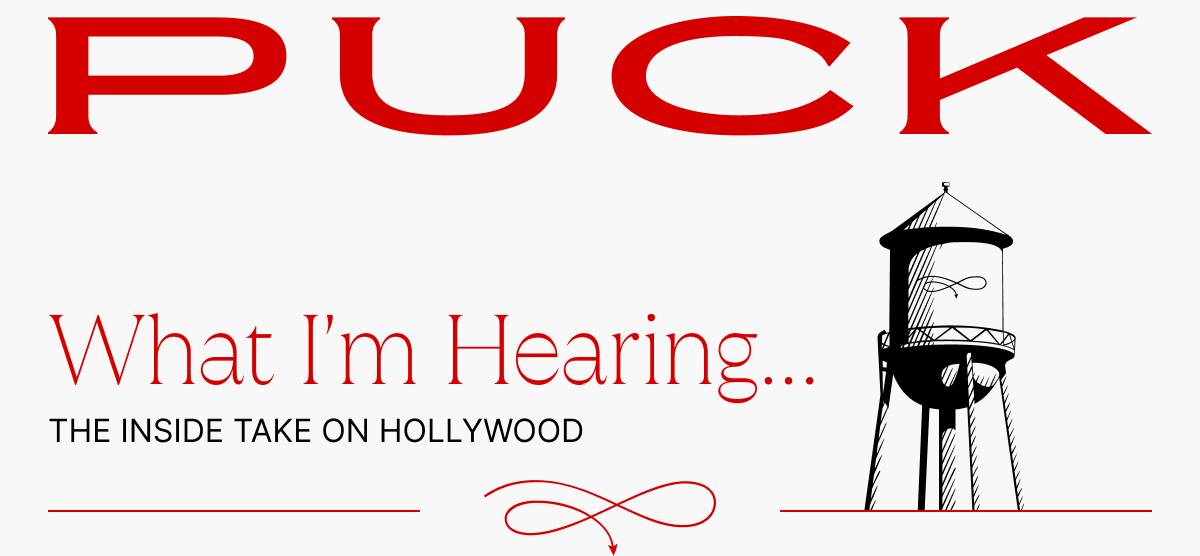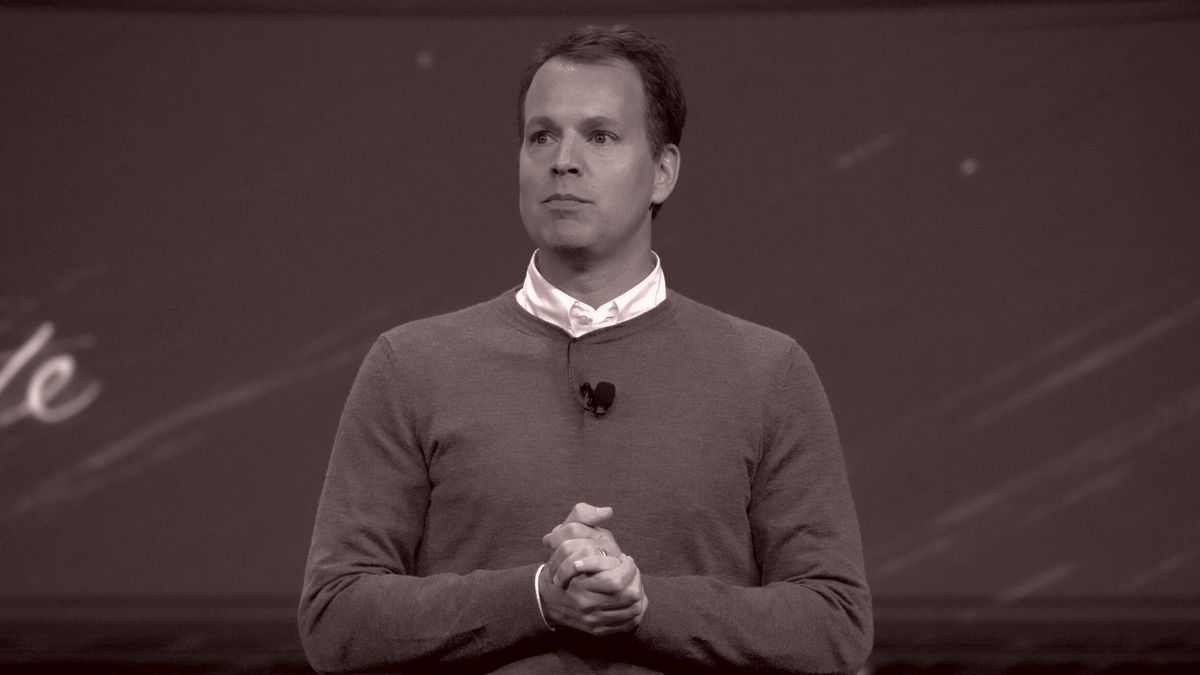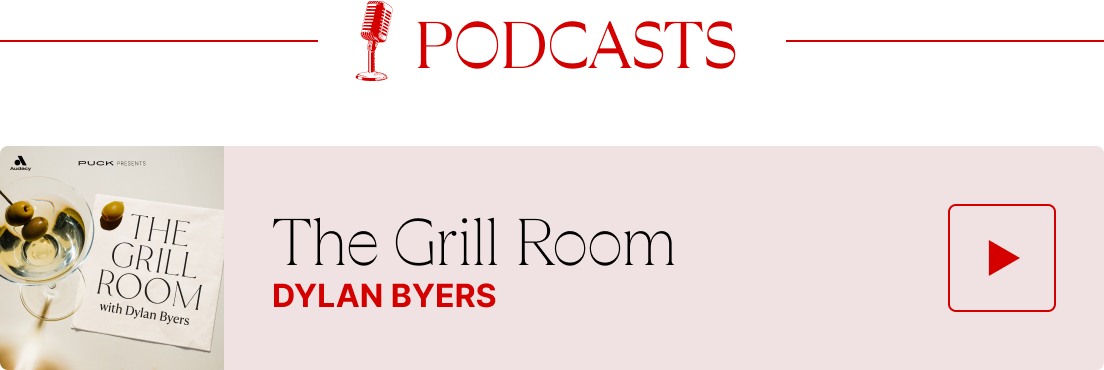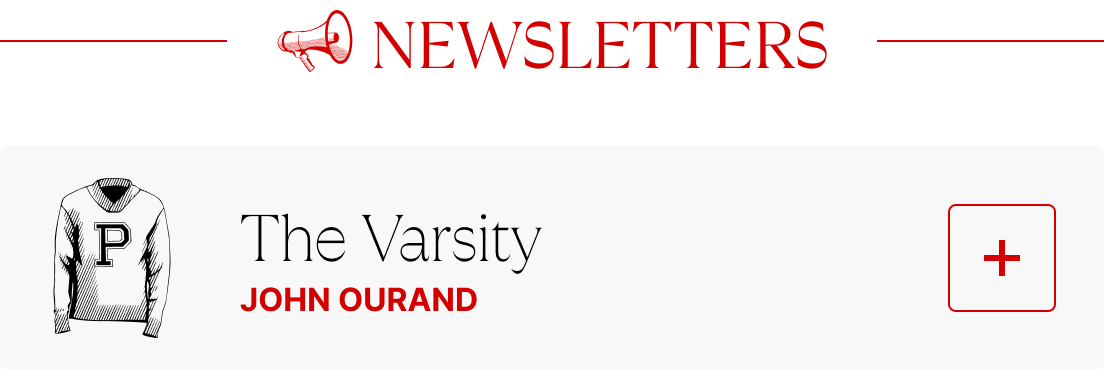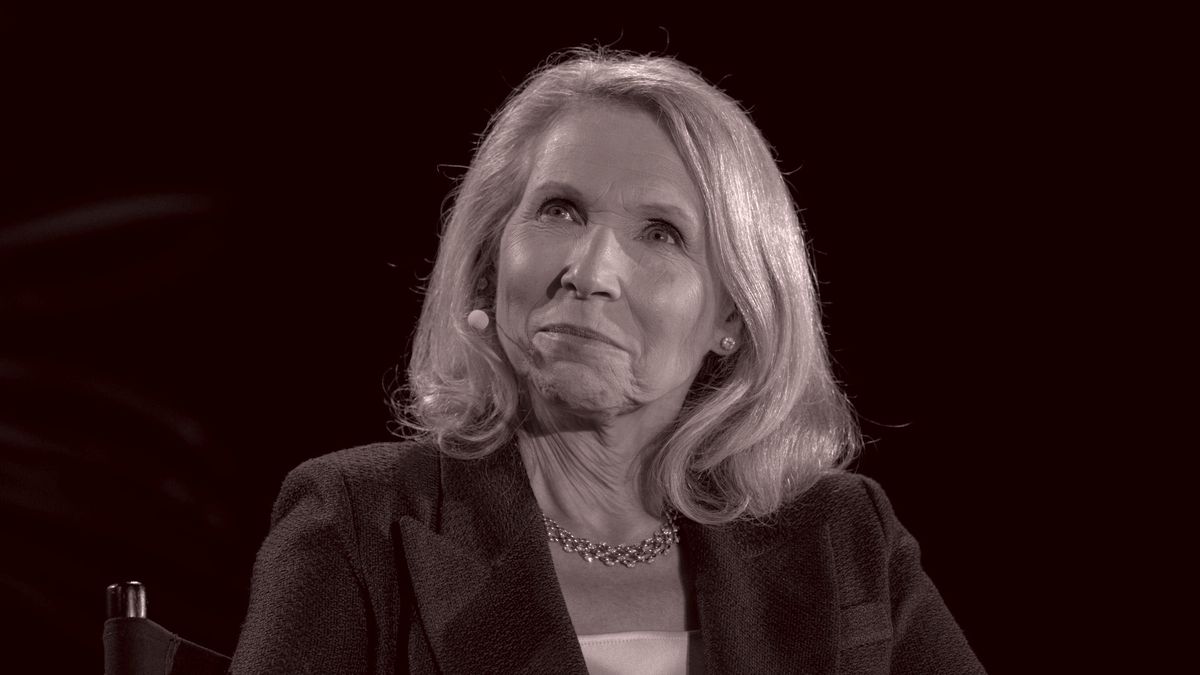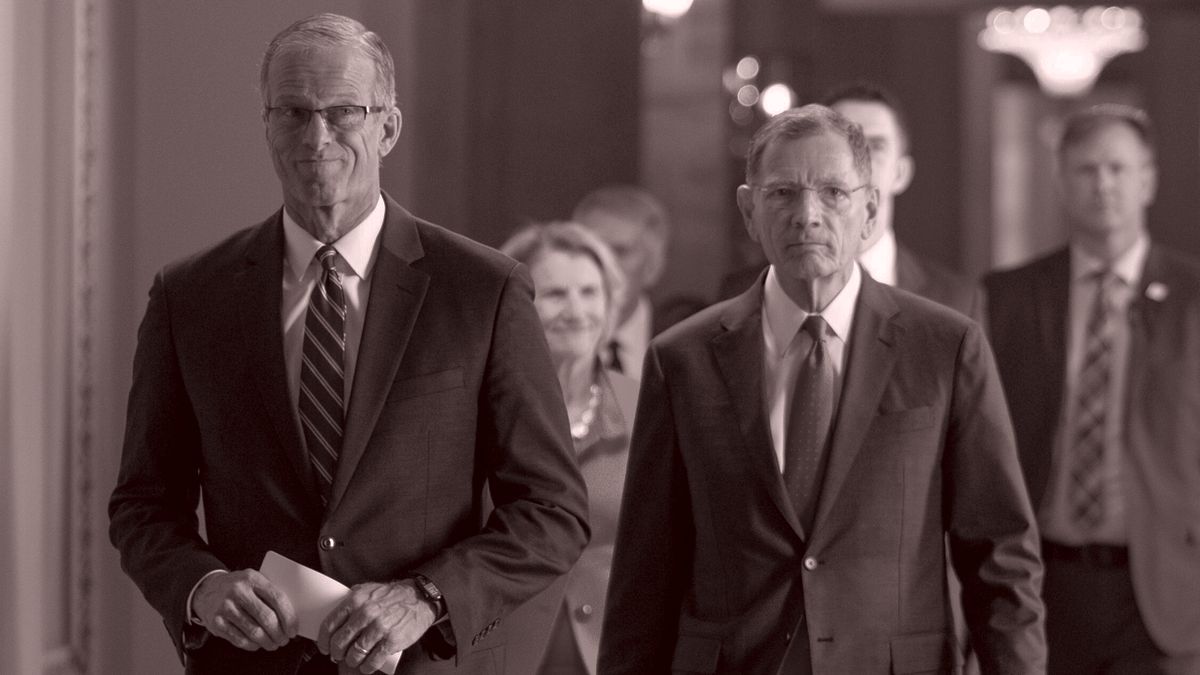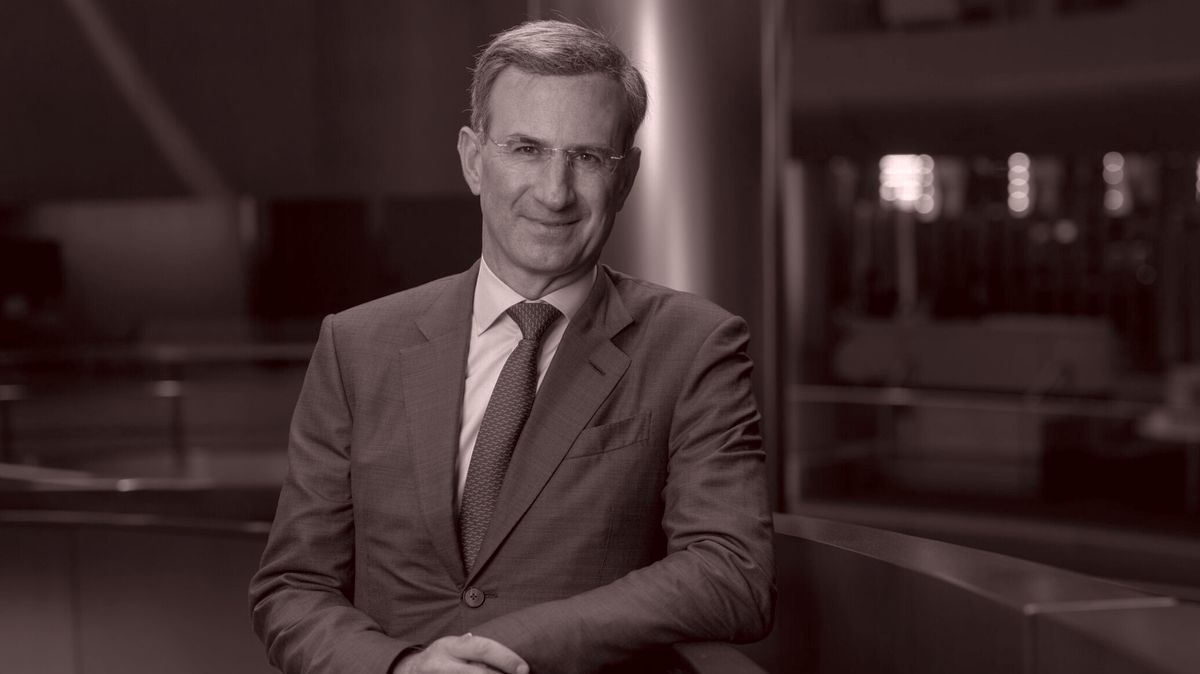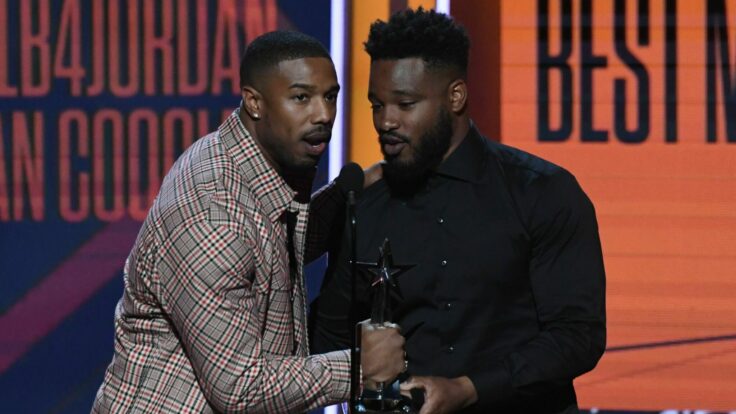Welcome back to What I’m Hearing. I’m sick. Like, knocked-out, bedridden,
bailing-on-the-Beyoncé-concert sick. I’ll spare you the details, but hopefully it’s just a particularly bad stomach bug. Bottom line: My regularly scheduled Thursday issue will have to hold for Monday, and in its place the nice people at Puck have put together some highlights from my recent The Town interview with HBO/Max content chief Casey Bloys.
But first…
No Thursday Thoughts today, but I’d be remiss if I
didn’t mention that the weenie lawsuit filed by publicist Cindi Berger and the parent company of R&CPMK against some defectors (which I wrote about in December) was thrown out today by a New York judge. Another case is still pending in L.A., and, Berger tells me, “We continue to believe in the strength of our case and expect to prevail.” We’ll
see…
And speaking of publicity, it’s interesting to see Tom Cruise giving an interview to People for a “special issue” celebrating Mission: Impossible. No, it’s hardly a 60 Minutes profile (the biggest news from the chat seems to be that Tom sometimes eats an insanely large breakfast), but Cruise and
his publicist, Amanda Lundberg, have limited his press in recent years to U.K. movie mag Empire and… basically nothing beyond his social channels, stunts on the late Late Late Show With James Corden, and his global premiere events, where he chats with hundreds of outlets for 30 seconds apiece—nothing beyond the approved talking points.
I’m told Cruise is set to appear on The Tonight Show With Jimmy Fallon in the run-up to The Final
Reckoning, which will premiere at Cannes on May 14 and hit theaters May 23. Cruise hasn’t done Fallon since 2018, when his “Mad Lib Theater” bit went viral. It’s hardly a full-on P.R. blitz, but given that the most recent Mission underperformed at the box office, Cruise seems to understand he needs to be a tiny bit more available.
Now on to the Casey chat…
|
|
|
A candid conversation with the HBO and Max content chief about the evolution of the prestige
brand in the Zaslav era, why he’s no longer competing with Netflix, and the mandate now that he’s not programming a “something for everybody” service.
|
|
|
In the streaming wars era, Casey Bloys has been challenged as perhaps no other programming
executive has. In charge of content at HBO since 2016, Bloys now carries the title of chairman and C.E.O. of HBO and Max Content, which means he oversees what is still, arguably, the most respected brand in television—and a whole bunch of other stuff on Max.
That’s due to the broader purview mandated by corporate owners AT&T and now Warner Bros. Discovery. But last week, Bloys and JB Perrette, the company’s streaming chief,
declared publicly what had already become apparent to industry insiders: the streaming arms race is over, Netflix and Amazon won, and Max can’t be a one-stop, “everything for everybody” platform. Instead, it now wants to be the service you add to Netflix or Amazon. In many ways, it’s a reversion to the HBO identity from the
Richard Plepler days, when the mantra was, “More is not better, better is better.”
|
|
|
A MESSAGE FROM OUR SPONSOR
|
STAR POWER
High achievement. Higher adrenaline. With a twin-turbocharged V8, the Range Rover Sport delivers
heart-pounding intensity on every drive.
EXPLORE
|
|
|
Yet Max is still launching around the world, helping boost its subscriber count to 117 million worldwide,
which includes HBO linear subs. And gone are the days when HBO could tether itself to the cable bundle with only a few buzzworthy shows a year. Max now needs to earn its subscribers every month, which Bloys says he’s doing with more populist fare like the recent medical drama The Pitt. What the audience wants from HBO and Max, Bloys told me, hasn’t changed: elevated storytelling.
Earlier this week, Bloys came on The Town to discuss the strategy shift, why he’s leaning so
hard into I.P.-driven shows, what he has to prove in the comedy space, and how he hopes to boost engagement (while remaining profitable). The conversation has been edited for length and clarity; listen to it in its entirety here and
here.
|
Matt Belloni: This past week, you and JB Perrette said it’s no longer your
goal to create a one-stop content shop that will compete with Netflix. Why are you shifting strategies?
Casey Bloys: Max has been out in the marketplace for a while. We did an assessment of what subscribers were watching. We did a lot of research and focus groups. The things subscribers want from us are HBO programming, scripted dramas, comedies, documentaries, the pay-one [licensing window] movies, library movies, and basically the
Warner Bros. TV library. We went through all this data and showed it to David [Zaslav]. The great thing about David—he looked at it and said, Okay, let’s figure out what we’re gonna do.
Five years ago, when AT&T bought us, and even two years ago, the idea was still that we were gonna be something for everybody. Everybody wanted to be the next Netflix, and it’s so incredibly expensive to do that. And Netflix lost a lot of money for a long time in
order to get to the place they are. We have accepted and understand that the majority of our subscribers at this point are going to have Netflix, and they’re going to have Amazon. If anybody is going to give Netflix a run for their money in terms of being the “everything” streamer, it’ll be Amazon. They’ve got the reach, they’ve got the financial firepower.
So when someone is putting together their media diet, it’s about what you add to that. And that’s where it aligns with what we were
finding from our research; what people want from us is the Warner Bros. movies, the library, the HBO content, and the scripted.
So shouldn’t the service just be called HBO?
When you go back to when AT&T first launched HBO Max, putting HBO in that title was controversial. There were a lot of, Oh my God, HBO is gonna be next to Friends in the TV library. One aspect of the launch that proved to be successful
was that the HBO brand could stretch. It showed that HBO could take on having Warner Bros.’ TV library, which at the time was controversial. The thinking at the time was that once you put HBO in the title, it defines everything that comes on the platform. And we knew we had a lot of lean-back, Discovery programming, and HBO wasn’t designed to be defined by that kind of programming. So the idea was to make HBO a sub-brand, so that it didn’t have to define all of that.
Obviously,
Zaslav is thinking he’s eventually going to sell the company. The potential buyers for it are Amazon, Netflix, Apple… So maybe having this second-level add-on service that is branded “quality” would be an appealing proposition for a company like an Amazon.
I can’t comment on anything in terms of mergers—you’ll probably find out before me! But going back to HBO Max: A lot of streamers are dealing with this, even Netflix. Once Netflix came along
and became both the platform and the programmer, it made maintaining brands very mushy and hard. Netflix is dealing with the opposite problem. They get annoyed that people don’t acknowledge the prestige shows that they have. Well, part of the reason for that is because a Netflix show is a Netflix show is a Netflix show.
They should sub-brand their content. I don’t know why they don’t…
That’s kind of the opposite of what
we’re dealing with. We are, you could say, being precious about what HBO is and what it represents, and how you merge that. But when you have a brand that means something, you do want to be a little precious about it. I think we’re all trying to figure out how you maintain a brand, but give yourself as wide a berth as possible in terms of selling the brand to the public, or having it mean something to the public.
Pre-streaming, it was very clear: HBO was about best-in-class
content that you can only get on HBO—a specific kind of material. Just having a hit wasn’t a reason to do a show. If it didn’t further the brand and further that audience, why do it? Now, when you guys talk about your hits, you’re talking about The Pitt, which is a pretty down-the-middle medical show. You’re talking about The Last of Us, which I love and is an elevated
show, and is great—but it’s a zombie show; you can see a version of that show on other platforms. What is the mission now?
The mission has not changed for HBO. We were a subscription service before anybody else. So you always had to ask yourself, Is this TV worth paying for? What we have done successfully is consistently deliver HBO hits. Now, the two things I would push back on a little bit—when you say The Last of Us is just a
zombie show, people said the same exact thing about Game of Thrones when we launched it, that it was just a swords-and-sandals show. I would say it is more elevated than that.
One of the things we have consistently done is take a genre and kind of put a spin on it. Euphoria, you could say that’s just a high-school show. Yes, it’s a high-school show, but it’s a pretty intense version of a high-school show, dealing with addiction and whatnot. So, we’re
always trying to put a spin on something.
I went to some producers and asked, “What is the town hearing from HBO?” and the response I got was: They want big, commercial shows; they want ongoing series (don’t pitch them the artsy limited series); they want basically the same as the other services—but better.
The problem with going to the town asking about what HBO wants is you have a lot of people whose project didn’t get through.
The bull’s-eye has always been very, very small.
Well, I’m just gonna go through some of the I.P.-driven shows that are coming and that you’ve done lately: Dune, The Penguin, The Peacemaker, Lanterns,
It, Harry Potter…
Wait, go back to Penguin. Why are you bringing that up as an Oh my God?
It’s I.P. extension, and makes Zaslav get all tingly in his extremities. I don’t think you got into this job to make The Penguin. I think you got into this job to make more boundary-pushing,
original shows. And because of the nature of your company now, you are making lots of I.P.-driven fare.
I’m picking out The Penguin, specifically, because out of those shows, that has won multiple awards—
It’s a great show, but it’s I.P.-driven…
The goal is always to do a great show, I.P. or not. If you go back to Game of Thrones or True Blood—which
someone could’ve said is just a vampire show—HBO has always had some version of I.P. We’re certainly doing more now. I do think that people kind of inflate what David is doing on a daily basis, you know? He’s not picking our shows. One thing you have to remember about the history of HBO—people talk a lot about the original programming, and obviously, I’m very proud of the original programming, but a big part of the draw for HBO was the pay-one library. We used to have
the Fox output, the Universal output, the Warner Bros. output, and everybody kind of took their pay-one back for their own streamers. Most of those movies would be I.P.-based. But again, I don’t do any show on HBO just to do it. I don’t do anything just because it’s I.P. We do it, first, because we think it’s really great.
|
“It’s Rare That We Don’t Get It”
|
When you are sitting down with a creator who is weighing other offers for a particular project, how
do you pitch these days? You’ve got to know that if Netflix and Apple really want something, they will pay for it, and that’s a relatively new thing for HBO…
It’s not new, because Netflix has been doing that for a decade. We’ve been up against that for a long, long time. And I will tell you this—I know people think that this is bullshit, but I’m telling you, if there is something we really, really want, it’s rare that we don’t get it.
From the conversations I have, it’s not just about how we develop—although I think our development teams are among the best in the industry—it’s how we make deals. It’s still about how we market. It’s still how we interact with the publicity department.
Now, if somebody is only motivated by getting as much money as they can get—that has absolutely happened. But we still make an incredibly compelling place to do business. We remain a first call, and it’s something we don’t take for granted
at all. But again, we’ve been at this for a long time. We’ve had that competition for over a decade now, and have done very, very, very well.
|
|
|
A MESSAGE FROM OUR SPONSOR
|
STAR POWER
High achievement. Higher adrenaline. With a twin-turbocharged V8, the Range Rover Sport delivers
heart-pounding intensity on every drive.
EXPLORE
|
|
|
Engagement is the game these days, especially since all the services are now advertising platforms.
Your engagement is much lower than some of your rivals. What is the strategy to increase engagement?
It’s a little bit of everything. I feel like everybody is searching for this Holy Grail, which is: What’s the right mix of programming, and what’s the right amount of programming to get people to subscribe—and to retain them? Netflix is so far ahead of everybody in terms of the modeling for that. But it’s also a platform thing. For
instance, we didn’t have autoplay, or what’s coming up next, or all those simple things that really do increase engagement. It’s a game of inches. It’s a little bit merchandising; it’s a little bit the algorithm; obviously, a lot of this is the programming. There’s not one magic bullet that goes, If you just put on one show, that changes everything.
You came from comedy, but there hasn’t been a hit comedy from HBO in a while.
Hacks is Max. Is the era of the big HBO comedy hit over?
No, no, we have a bunch of new comedies coming. You go through phases, you replenish, and we’re definitely doing that. We’ve got a Rachel Sennott project coming up. We’ve got a Tim Robinson show coming up. We’ve got a Steve Carell show coming up from Bill Lawrence. We have a lot in
the hopper.
Does it bother you or flatter you when you hear that Apple shows “feel like HBO”?
Remember, when Netflix started, they tried to do a bunch of HBO shows. So, no, I think it’s great. And competition is nothing new for us. There’s an old rule: Keep your eyes on your own paper. We’re aware of what people are doing, but you really can’t get in your head about it. You just have to keep doing what you’re doing. I
don’t get mad. You can’t get infuriated. As long as we keep performing and putting out shows that people care about and want to watch, that’s what I can control.
|
You’ve got a Harry Potter show in the works. How much do you worry about J.K. Rowling’s transgender
views?
The decision to be in business with J.K. Rowling is not new for us. We’ve been in business for 25 years. We already have a show on HBO from her called C.B. Strike that we do with the BBC. It’s pretty clear that those are her personal, political views. She’s entitled to them. Harry Potter is not secretly being infused with anything. And if you want to debate her, you can go on Twitter.
Yes
or no, Entourage reboot?
No.
What’s the pass you most regret?
When Netflix was at the peak of their offering everything to everybody, the show Dear White People—I really wanted a show set in college, and that’s one where we offered development. I thought it was a really interesting take, but they took the series order from Netflix
and I kind of regret that. And also, GLOW was another one that I wanted.
Show on another service right now that you’re most jealous of?
Adolescence.
If you ran all of Hollywood for one day, what’s the first thing you would do?
I would implement equal tax credits across the globe, so it didn’t make you shoot your shows somewhere else.
|
Have a great weekend,
Matt
Got a question, comment, complaint, an on-call gastroenterologist?
Email me at Matt@puck.news or call/text me at 310-804-3198.
|
|
|
Finally, a media podcast about what’s actually happening in the media—not the oversanitized,
legal-and-standards-approved version you read online. Join Dylan Byers, Puck’s veteran media reporter, as he sits down with TV personalities, moguls, pundits, and industry executives for raw, honest, sometimes salacious conversations about the business of media and its biggest egos. New episodes publish every Tuesday and Friday.
|
|
|
A professional-grade rundown on the business of sports from John Ourand, the industry’s preeminent journalist, covering the
leagues, players, agencies, media deals, and the egos fueling it all.
|
|
|
Need help? Review our FAQ page or contact us for assistance. For brand partnerships, email ads@puck.news.
You received this email because you signed up to receive emails from Puck, or as part of your Puck account associated with . To stop receiving this newsletter and/or manage all your email preferences, click here.
|
Puck is published by Heat Media LLC. 107 Greenwich St, New York, NY 10006
|
|
|
|
